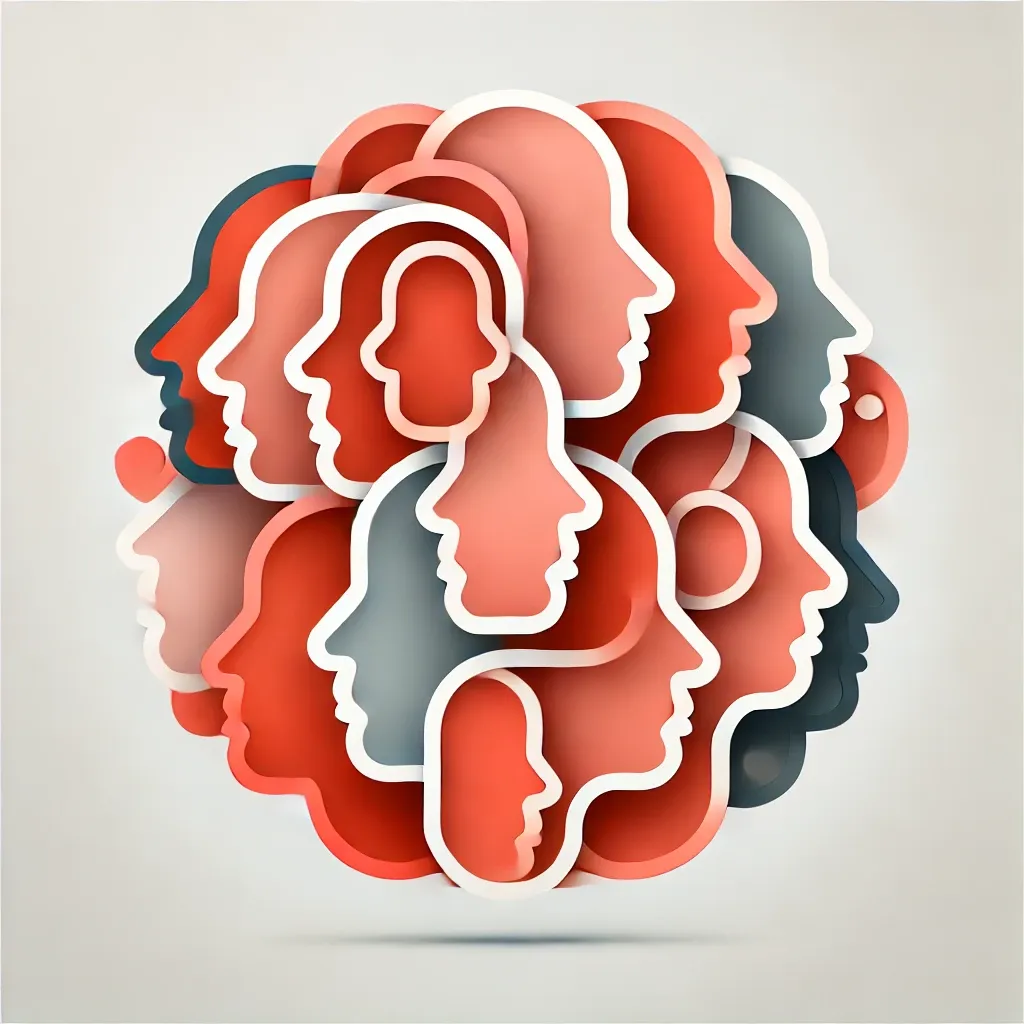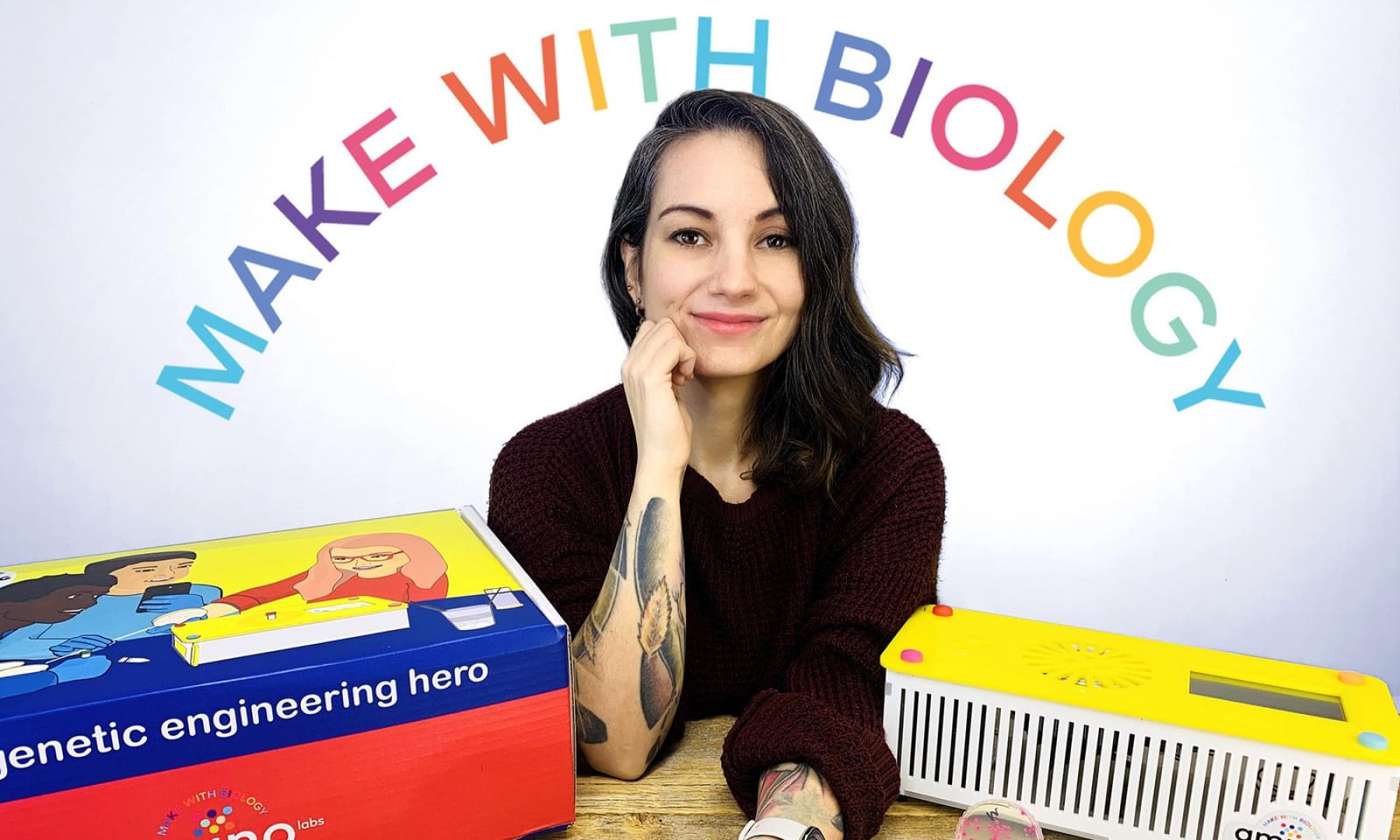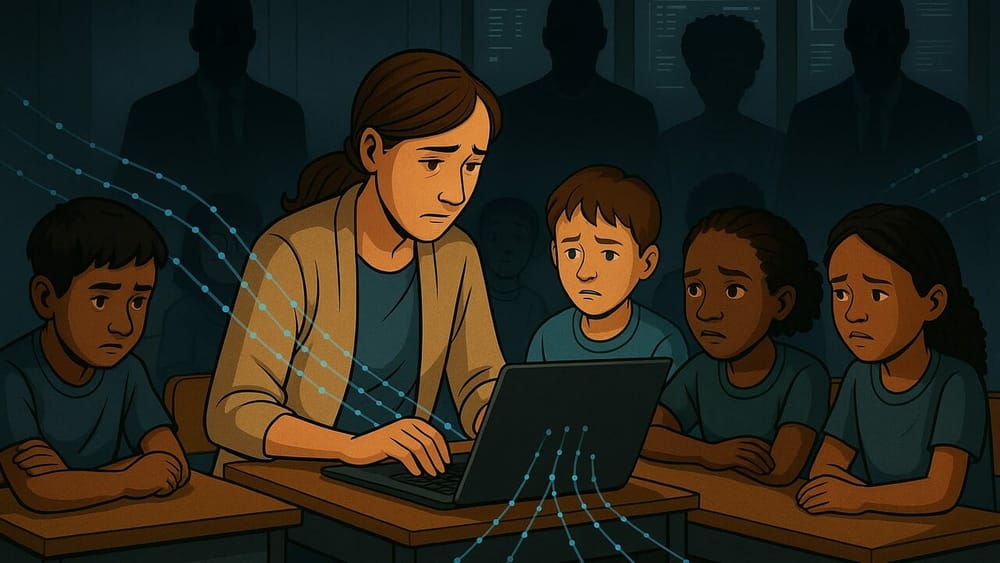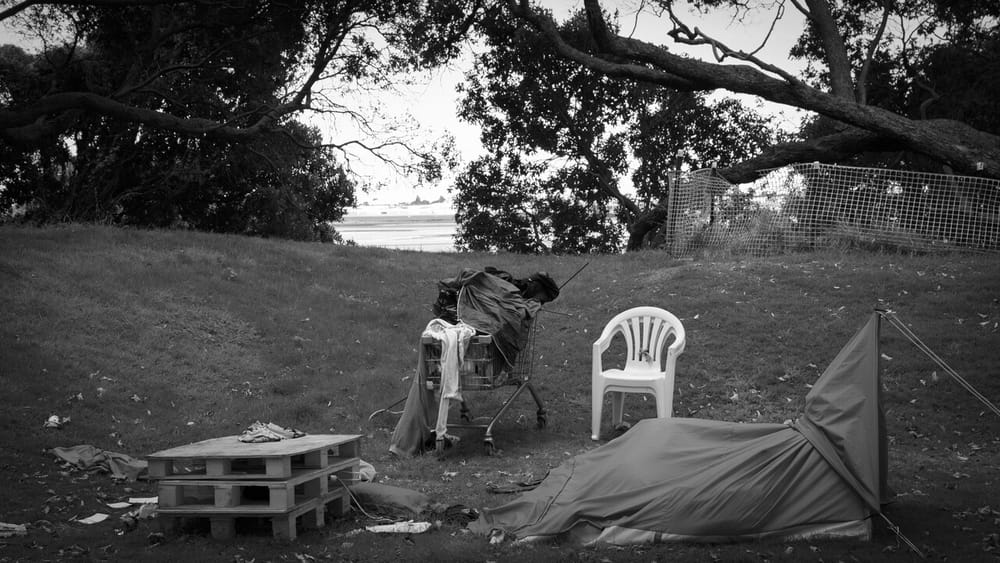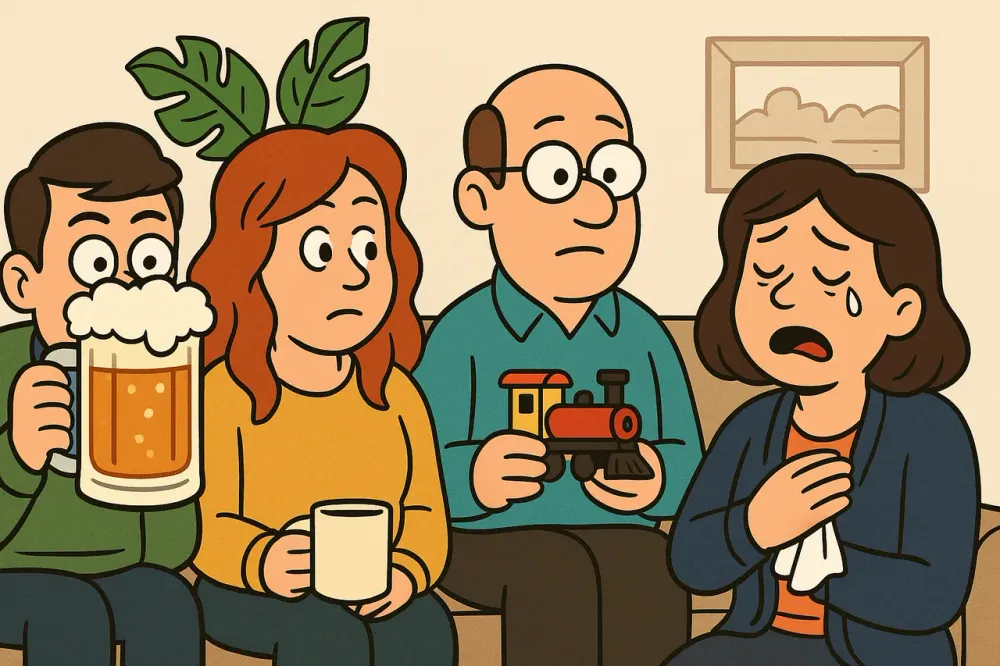Over the past 5–10 years, the growing popularity of open source or open access information has seen the emergence of DIY Biotech labs across the world.
These community-based labs, dedicated to serving ordinary citizens, are paving the way for people of all backgrounds, ages and ability levels to dabble in science, while in a supportive, welcoming and safe environment.
Genspace, Amino Labs and MboaLab are three DIY biotech labs, among many others worldwide, that have taken science quite literally into their own hands, with an ethos of making biological innovation and technology more accessible to everyone, including ‘citizen scientists.’
Genspace is the world’s first community biology lab, with a mission of providing an open space where individuals from all backgrounds "can experientially learn, boldly create, and meaningfully grow with the life sciences.” Likewise, Amino Labs’ aim is “to make biotechnology learning and innovation accessible to everyone.” They focus on at-home science kits, which enable people to tinker and experiment with science in the comfort of their own home. While Genspace and Amino Labs are both based in the US, MboaLab is a community-focused DIY biotech lab making waves in Yaoundé, Cameroon. MboaLab has a commitment to the people of Cameroon and, through its DIY lab, hopes to educate, transform and impact the lives of its community.
Science, an industry once locked up in an ivory tower, is no longer reserved for academics, but can now be pursued by anyone with an interest in it.
The driving force behind DIY biotech labs
One of the reasons we’re seeing the rise of DIY biotech labs across the world is because traditional avenues of scientific education are often perceived as too theoretical, restrictive and profit-driven. There is a feeling that formal education does not allow for much practical experience, and that it can actually place barriers on experimentation, creativity and innovation within the world of science.
Co-founder of MboaLab, Dr Thomas Hervé Mboa Nkoudou, also known as Thomas Mboa, had his own experience of this while studying biochemistry at the University of Yaoundé I in Cameroon. He notes that the Faculty of Science courses at the university were very theoretical, to the point where “laboratory equipment and reagents were not really accessible, they were rare, even non-existent.” Having reached the end of his studies without having touched a microscope, Mboa started to think more about bridging the gap in access to scientific equipment, particularly in the state of Cameroon. This ultimately planted the seed of what became his own DIY biotechnology lab, MboaLab, in 2018.
DIY biotechnology labs believe in the notion that science shouldn’t be reserved for those who are formally qualified scientists, and that anyone and everyone should be able to dabble in science. Before Julie Legault, founder and CEO of Amino Labs, entered the biotech world, she was working in the field of biometrics, wearables and interactive art—in other words, not science at all. It was when Legault was studying at the MIT Media Lab that she discovered biotechnology, via a small workshop she decided to attend by chance. This was the beginning of her fascination with biotechnology, and what inspired her to explore how biotechnology could be seen through a creative lens.
“I fell in love with the potential creativity of biotechnology. I saw how creative biotechnology can be, how it is changing materials, and changing art,” Legault says.
Legault then wanted to continue her biotechnology journey from the comfort of her home; however, she soon discovered that this presented quite a challenge without the right resources and equipment.
“First, I did not have the multi-year training that scientists earn to use all the shiny and expensive equipment, nor did I know where to obtain DNA, organisms, pipettes—the other stuff needed to [create] with biology," she says. "The MIT lab facility manager and others did their best to help, for which I am still grateful. Still, the traditional system was inaccessible and I asked myself, ‘why can’t I just do this at home?’” This frustration with the existing avenues for learning about science which was the impetus for the creation of Amino Labs.
Legault also believes that, in a general sense, it’s important for everyone to have a basic understanding of biotechnology, on the basis that it’s the way of the future. She encourages us to start thinking about the implications of this, and the way in which it will impact our lives, emphasising that, “from ancestry to gene therapy and designer babies, there is a lot of biotechnology coming our way!”
DIY biotech labs as informal learning hubs
While you cannot attain a Bachelor of Science or other formal qualifications at DIY biotech labs, there are still ample opportunities to take part in training and education, which may enable a person to forge a pathway into science as a career.
At MboaLab, Mboa outlines that through their connections with local universities they are able to “organise and run internship and training programs to equip these growing talents with capacity building skills in molecular biology, synthetic biology, engineering, and biotechnology.” Mboa estimates that 40–50 researchers and students will be trained through their labs in the next two years, in methods that are revolutionising molecular biology-based research.
At Amino Labs, they have a beginner’s resource called the Zero to Genetic Engineering Hero Home Pack, which Legault says does not require any previous knowledge of biotechnology. This introductory pack includes the DNA Extraction Kit (to learn how to extract DNA from fruit), the Canvas Kit (to learn the basics of growing bacteria), and the Engineer-it Kit (to learn and practice genetic engineering). You can then purchase the add-ons of the Zero to Genetic Hero Guide Book, DNA Playground, or Mini Safety Set. Legault says that the all-in-one DNA Playground is the best option for learners to use as their laboratory. She notes that it replaces the extensive list of equipment usually required for genetic engineering, which traditionally requires at least an incubator, heat bath, ice, ice bucket and thermometer. Instead, the DNA Playground is a singular hub which has its own built-in ‘hot station’ as well as a ‘cold station,’ meaning that the mini-lab contains everything one needs to undertake their own genetic engineering experiments. These at-home kits, such as Amino Labs’ DNA Playground, are changing the way its users learn through a practical, hands-on approach that removes the barriers of traditional science.
Genspace also offers a plethora of different online and in-person classes, including more traditional science topics such as ‘Molecular Biology 101’ and ‘Intro to Plant Genetics: From Genotype to Phenotype.’ They also have some fun and quirky classes like ‘Kombucha Papermaking: Grow Bioart in Your Kitchen’ or ‘Paint and Sip With Living Art.’ You can tell that a lot of Genspace’s classes are designed to appeal to almost anyone, and framed in a way that makes science seem exciting and interesting. Learning about science no longer requires long, drawn-out lectures with arduous note-taking and stressful exams —instead, it can be hands-on, social and lots of fun.
Addressing the fears: Pseudo-scientists with access to weapons of mass destruction?
Despite the obvious perks of DIY biotech labs, if the thought of your eight-year-old daughter or your non-scientist neighbour taking part in haphazard DIY science experiments scares you, then you are not alone. Safety is a common criticism aimed at DIY biotech labs, and understandably so. The concern is that everyday people should not have access to materials and equipment which could be used inappropriately, for example, to create a deadly new virus.
However, what critics often don’t realise is that the techniques and expertise needed to do such things is well beyond the capabilities of the typical DIY biologist or community lab.
Ellen Jorgensen, co-founder of Genspace and Biotech without Borders, explores these criticisms around safety in her 2012 Ted Talk, ‘Biohacking – you can do it, too’. She emphasises that, as a collective, the DIY lab community got together and “hammered out a common code of ethics.” Along with that, she also noted that Genspace is very careful in following safety regulations and protocols, which means they are not acting in a way that will put society at risk. Ultimately, Jorgensen believes the risks posed by DIY biotech labs to be low and that the chance of an accident, like the creation of “some sort of superbug,” is “literally about as probable as a snowstorm in the middle of the Sahara Desert.”
Similarly, at Amino Labs, Legault asserts that there is a significant emphasis placed on safety with their at-home kits. All of their manuals include safety instructions, their website features a safe science video and quiz for learners to engage with prior to undertaking any experiments, and they only ever use and send Biosafety Level 1 organisms to their beginners.
Biosafety Level 1 is the safest of the biosafety levels and the designated level of most DIY biotech labs. In the United States, the Centres for Disease Control and Prevention, has developed biosafety levels (BSL) which range from 1 to 4 (with a BSL-1 being the lowest, and BSL-4 being the highest). A BSL-1 designated lab can only work with low-risk, non-pathogenic microbes that present minimal potential hazard to laboratorians and the environment. At BSL-1, work can take place on an open lab bench or regular table, and personal protective equipment (PPE)—lab coats, gloves and eye protection—worn only as needed.
Conversely, BSL-2, BSL-3 and BSL-4 are progressively more restrictive. At BSL-2, a designated lab can work with microbes that pose moderate hazards to laboratorians and the environment. There are restrictions on laboratory access, and certain procedures must be conducted within a biological safety cabinet. At BSL-3, a designated lab can work with microbes that can cause serious or potentially lethal disease through respiratory transmission. PPE must be worn, respirators may be required, and work with microbes must be conducted within a biological safety cabinet. At BSL-4, the microbes are dangerous and are frequently fatal without treatment or vaccines. There are only a small number of BSL-4 labs around the world, and the laboratory protocols and restrictions are very strict.
Overall, it is apparent that the DIY lab community is safety focused and are strictly limited in the level of havoc they could potentially cause.
Biotech labs as a mechanism to support local communities
Not only are DIY biotech labs enabling the average citizen to partake in science in a safe manner, but they are also positioning themselves as sustainable and ethical organisations that can support and improve the living conditions of their local communities.
MboaLab, in particular, has placed their impact on the local community at the forefront of their initiative, as evident through their slogan, “Catalyse Local Sustainable Development Through Open Science.” Mboa notes that open science has the benefit of spurring innovation within a local context, with a focus on making sure it meets the needs of the Cameroonian community. He says, “Our approach and vision is to make sure that all these tools, innovation, resources and products that are developed [for people] are actually solving specific needs within a local context.”
For instance, MboaLab is also in collaboration with The Open Bioeconomy Lab (at the University of Cambridge), and the University of Buea in Cameroon for the Typhoid DX Project. Mboa says that the objective of this collaborative effort “is to develop a locally manufacturable diagnostic tool that is capable of distinguishing typhoid fever from paratyphoid.” According to Mboa, typhoid fever is responsible for over 500 deaths per year in Cameroon, and 75,000 to 208,0000 deaths worldwide per year. Typhoid fever and paratyphoid fever are caused by related but different strains of the Salmonella bacteria. However, because typhoid fever is more serious and is more likely to result in death if not treated promptly, a tool which distinguishes the two would have the potential to save lives. Mboa argues that this project will encourage the use of cutting-edge technology in Cameroon, and also helps pave the way for future collaboration. MboaLab also works with local hospitals and clinical medical laboratories, which is useful for training purposes, as well as enabling these places to have exclusive access to tools and protocol developed by MboaLab.
In addition, the internship and training programs at MboaLab mentioned earlier have opened up a whole new avenue of learning and development to the local community, and a way to build their capabilities. In turn, this can spark a passion for science, and a potential career pathway in the science world. MboaLab is committed to serving its community in this way, through helping its people—including the next generation—to aim high and dream big.
DIY biotech labs and our future
DIY biotech labs are a way for everyday citizens to play an active part in solving problems through science, and shaping the future of our world— and the DIY lab community are keen to have as many people on board as possible. As Legault asserts, “Only when millions more can problem-solve using biology, will our human and ecological problems be solved.”
So, whether you have the slightest curiosity in science, or have always wanted to try your hand at genetic engineering, your next step might be to join the DIY biotech lab movement, and see where it takes you!


